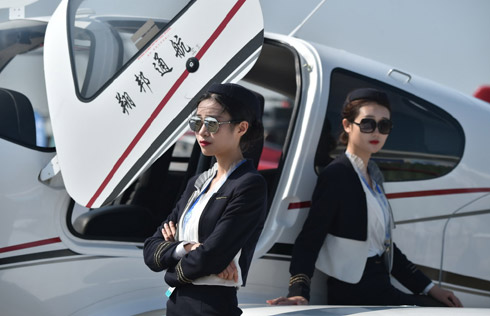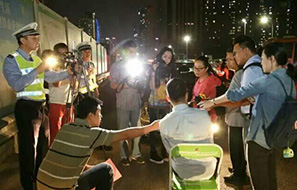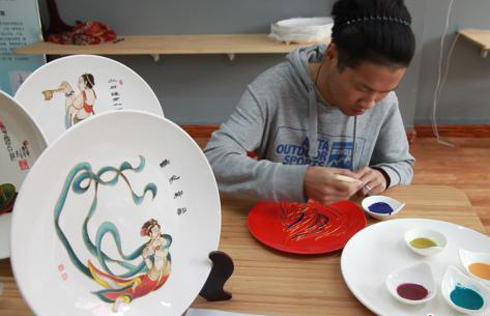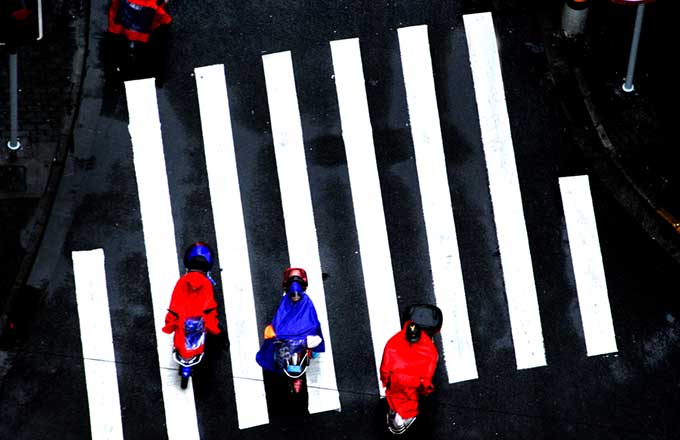An easier ride, but for some only
Having trouble getting a taxi in Beijing or Shanghai? There's an app for that.
Tired of fruitlessly standing at roadside trying to get a taxi, Chinese smartphone users in the two metropolises are increasingly turning to software to help them hail a cab.
A quick search online shows a range of free applications, such as iTaxi and Diandianche in Shanghai, and YYzhaoche in Beijing, that aim to take the hassle out of getting a ride.
"It's the ideal way to secure a cab, especially during heavy rain or snow," said Jiang Tiantian, a 21-year-old Shanghai student who regularly uses her smartphone to get a cab.
"I never bother calling taxi dispatch centers now, as the waiting time is just too long."
The apps allow users to send alerts to taxi drivers telling them where they are and where they want to go.
Chen Weiming, who drives for Dazhong Taxi Corp in Shanghai, said he is already a fan. He recently downloaded iTaxi to try out, with his daughter playing the role of passenger.
"Any cabbies in the vicinity get the information, and they can choose whether to go for the fare or not," he said. "It's certainly quicker than calling our office."
Shanghai's four largest taxi operators - Dazhong, Qiangsheng, Haibo and Jinjiang - all have dispatch centers, and together they handle an average of 57,600 calls a day, about 3.3 percent of all rides, according to the municipal transport authority.
Beijing has three central hotlines for passengers to call - 96109, 96103 and 96106 - and each works with multiple cab companies.
Yet, the smartphone apps "are a lot fairer" for taxi drivers, Chen said, explaining that some dispatch handlers manipulate the system to ensure friends and relatives get the most profitable jobs.
But Zhou Lihua, who like Chen is a taxi driver in his 60s, disagreed. He said he feels the smartphone system is unfair and unsafe.
"I don't have a smartphone, and I have no idea how to use a touchscreen. How am I going to compete with younger drivers?" he said.
He also warned that encouraging cabbies to keep an eye on their phones while driving could lead to accidents.
Ready to travel
Although the apps already have legions of fans in both cities, some people have criticized the fact most of the software requires users to "bid" for taxis, effectively offering drivers a guaranteed tip starting at 5 yuan (80 cents).
"I won't use these apps," said Li Fangwei in Shanghai, adding that 5 yuan is already more than a third of the city's standard flag-drop charge.
"Also, I can easily get a cab if it's a good fare, such as to the airport, without an app," he added.
Other people have taken to the Web to brand the apps "auctions in disguise" and complain that they merely increase the fierce competition for taxis and push up fares.
YYzhaoche - literally, shake to hail - is among the apps with a tip function. Launched in February 2012, it already has more than 100,000 users in Beijing and is expected to be available in Shanghai after the Lunar New Year.
However, unlike other taxi apps that are free to use and require a cash gratuity be given to the driver, any tips paid digitally to YYzhaoche are pocketed by the software company not the drivers.
Wang Weijian, who created the software, defended the function. He said it is a sign of the market-driven economy, and predicted that all taxi apps will eventually charge for the service when they become popular enough.
"Taxi drivers don't want to go to places where they know they will be trapped in a traffic jam, they don't want to waste petrol going in circles searching for passengers either," he said. "At the same time, passengers don't want there to be no cabs on a rainy night."
"That's why we need the tip function," he said, although he insisted it is not compulsory for all users.
Shanghai's traffic management administration has welcomed the introduction of the taxi apps, but has raised questions about the tipping system.
"We can't easily say no to new things that benefit passengers, improve the quality of service and put resources to better use, but there has to be some standard form of management," said Sun Jianping, head of the Shanghai Municipal Transport and Port Authority.
"If every cabbie goes for the big tips, who is left for those who can't afford to tip?"
Meanwhile, the Shanghai transport authority is considering a proposal by cab companies to introduce a fee for phone reservations.
Dazhong Taxi Corp already charges a 4-yuan fee, while the other three large companies are planning to introduce the fee after Spring Festival.
shiyingying@chinadaily.com.cn
- Advisers call for loosened policies on taxis
- Prohibiting taxi drivers from driving out of town is unreasonable
- Beijing police warn of taxi scam
- Rising taxi costs may lead to fuel surcharges: Govt
- Taxi owners want another fare hike
- Getting a taxi is now a taxing problem
- Tougher penalties to put taxi industry on right track



















